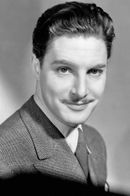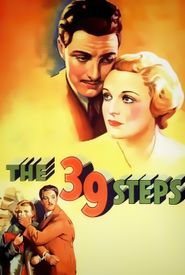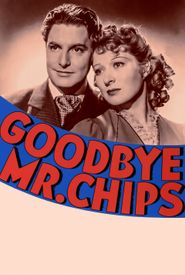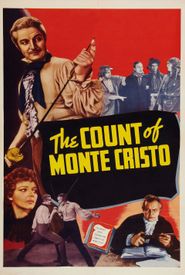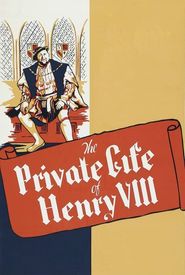Robert Donat's pleasant voice and somewhat neutral English accent were carefully honed as a boy because he had a stammer and took elocution lessons starting at the age of 11 to overcome the impediment. This vocal embarrassment encouraged him to act, and his other handicap, acute asthma, did not deter him. At the age of 16, he began performing Shakespeare and other classic roles in a number of repertory and touring companies throughout Britain.
In 1924, he joined Sir Frank Benson's repertory company, and later he was with the Liverpool Repertory Theater. His work was finally noticed by Alexander Korda, who gave him a three-year film contract. Three minor films were followed by his role as Katherine Howard's lover, Thomas Culpeper, in the hit The Private Life of Henry VIII (1933).
Donat's style of acting, whether comic or dramatic, was usually reserved, with the subtleties of face and voice being his talents to complement the role. A top draw in Britain, he went to Hollywood for The Count of Monte Cristo (1934),but he did not care for the Hollywood scene, the fishbowl lifestyle of the movie star.
Hollywood usually had to shoot in England if it wanted him badly enough. And that was not a problem after the box office reception given The 39 Steps (1935),the big hit for Alfred Hitchcock. There was a hint of whimsy in Donat's face that worked especially well with the sophisticated comedic elements that crept into several of his dramatic roles.
His portrayal of individualist Canadian Richard Hannay--which registered with North Americans both above and below the 49th parallel--in "Steps" was the first of such popular characters. Some of Hitch's famous on-the-set practical jokes ensued on the first day of shooting "Steps." The first scene was the escape on the moors from the master spy's henchmen by Donat and Madeleine Carroll handcuffed together.
Hitchcock attempted to land Donat for three other roles, Sabotage (1936) and Secret Agent (1936) and Rebecca (1940),but illness, commitments, and more illness, respectively, supposedly kept Donat from accepting each. Hollywood would be treated in kind, for Donat was more dedicated to stage work.
Hollywood did get him for The Citadel (1938),for which he was nominated for a Best Actor Oscar. He won the Oscar the next year for perhaps his best known role in Goodbye, Mr. Chips (1939) (MGM's with Greer Garson). Since 1939 was one of the most competitive film years in Hollywood history, Donat's reward for his mild Mr. Chipping was something of a stunner.
Unlike other British actors who came to work in America during World War II, Donat stayed in Britain. He did mostly theater but also some British films--only four--with one for Korda and one for Carol Reed. Only six more films were allotted Donat after the war and into the 1950s, all but one British productions.
He starred, directed, and co-wrote The Cure for Love (1949) and starred in The Magic Box (1951),a well-crafted and delightful (if a bit fictionalized) salute to the history of the British film industry. By 1955, all of Donat's acting efforts required a bottle of oxygen kept off stage and at the ready as his health continued to turn toward the worse.
The Inn of the Sixth Happiness (1958),a Twentieth Century Fox production shot in the UK, was Donat's final film. His fragility was poignantly obvious on screen, and he died shortly after the film was finished. He received a posthumous Special Citation from the USA National Board of Review and was nominated for a Best Actor Golden Globe. It was a career for Robert Donat that should have gone on, yet it was filled with many notable screen memories just the same.
